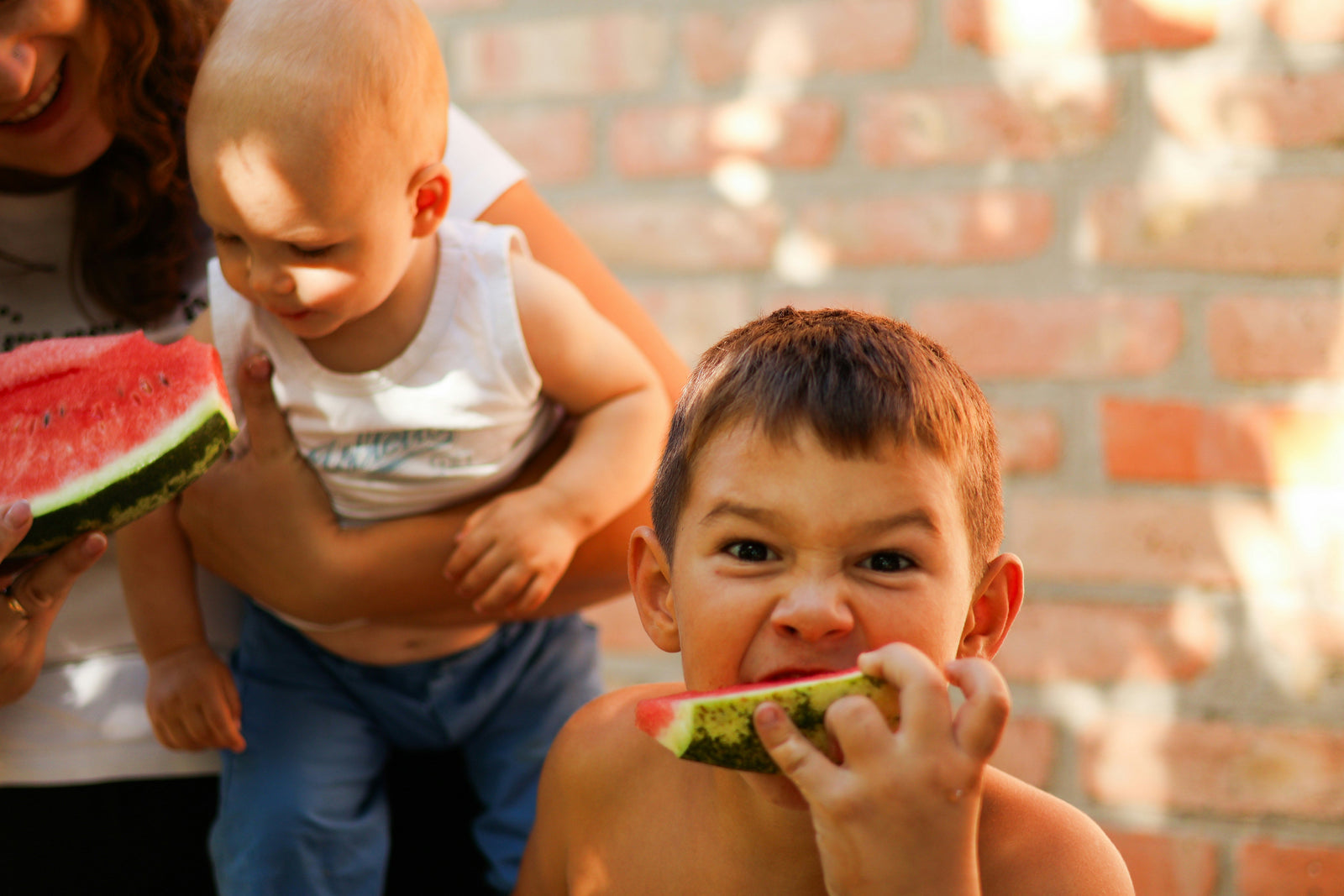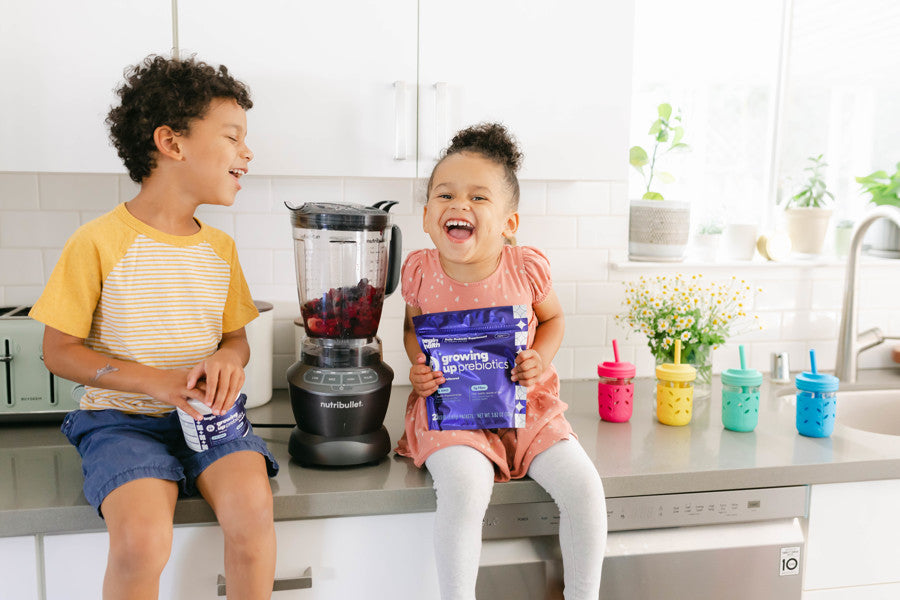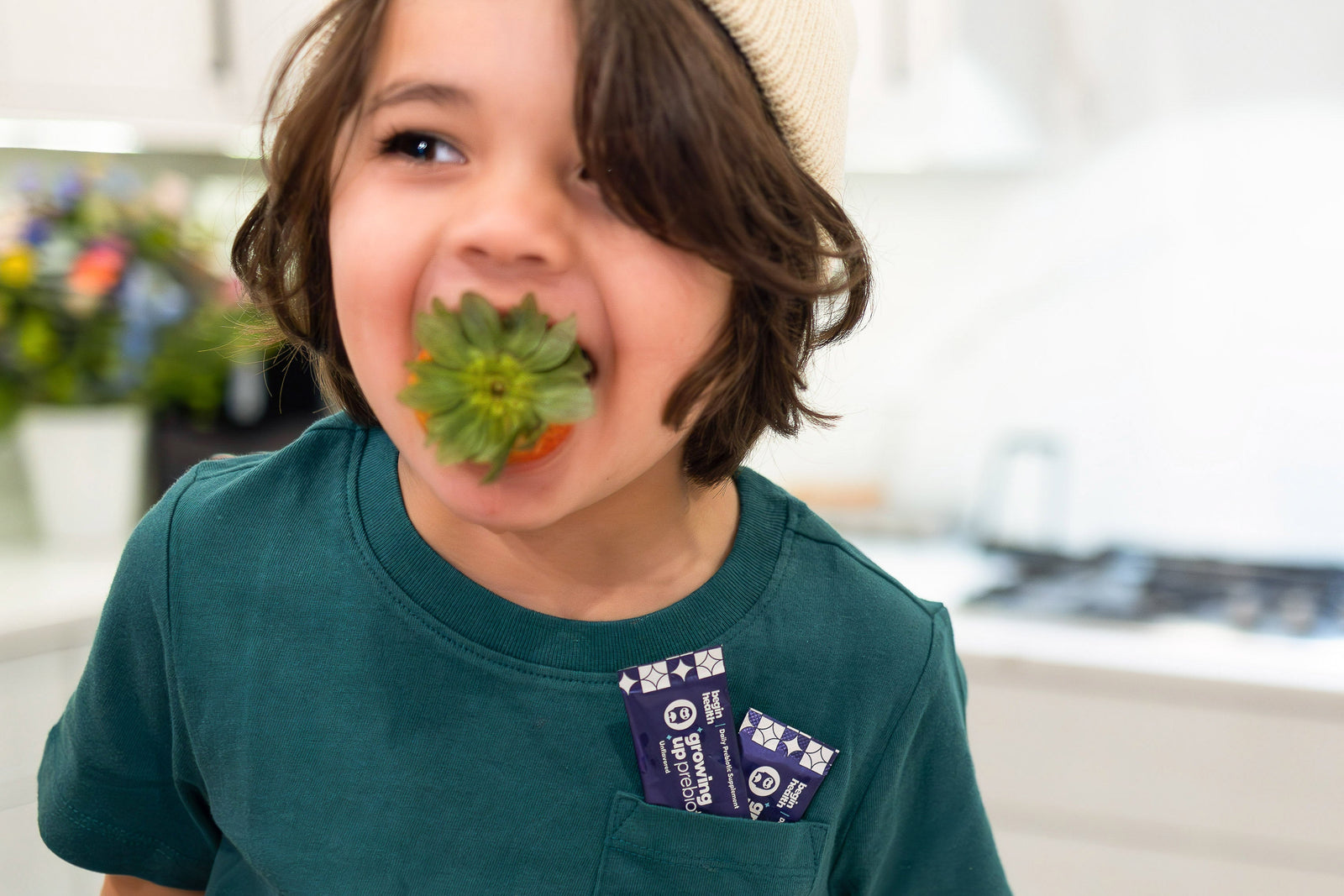Your Cart is Empty
Continue shoppingDo Laxatives Cause Constipation in Kids?
Medically Reviewed by May Zhu, RDN | Published May 24, 2024
share this article

Constipation is a common concern among kids, and parents often seek remedies to alleviate their little ones' discomfort. While laxatives are commonly used to relieve constipation, there's another question that’s trending among parents: Does long-term laxative use cause constipation in kids? This blog explores the potential side effects of laxatives and what parents need to know about constipation in kids.
Can Kids use Laxatives for Constipation?
Laxatives are substances that help stimulate bowel movements and alleviate constipation. They work by either increasing stool bulk, softening stools, or stimulating bowel movements. While they can provide short-term relief, there's concern that prolonged or excessive use of laxatives may lead to dependency and worsen constipation over time.
Daily reads to help your little ones lead happier and healthier lives.
Buy Now
Join the
Happy Gut Club
Types of Laxatives and Their Effects
There are several types of laxatives, each with its own mechanism of action:
Bulk-forming laxatives: These laxatives, such as psyllium and methylcellulose, work by absorbing water in the intestines, thereby increasing stool bulk and promoting bowel movements.
Osmotic laxatives: Osmotic laxatives, like polyethylene glycol (PEG) and lactulose, draw water into the intestines, softening the stool and facilitating bowel movements.
Stimulant laxatives: Stimulant laxatives, such as bisacodyl and senna, work by stimulating the nerves in the intestines, increasing muscle contractions and promoting bowel movements.
Stool softeners: Stool softeners, like docusate sodium, help moisten and soften the stool, making it easier to pass.
The Risk of Laxative Dependency
While laxatives can provide temporary relief from constipation, there's concern that their prolonged use may lead to dependency and even worsen constipation in the long run. Research published in the Journal of Pediatric Gastroenterology and Nutrition suggests that excessive use of stimulant laxatives can disrupt the natural bowel function and lead to laxative dependency in kids [1].
Impact on Gut Microbiota
The gut microbiota, comprising trillions of microorganisms in the digestive tract, plays a crucial role in maintaining digestive health. Studies inGastroenterology indicates that chronic use of laxatives, particularly stimulant laxatives, can potentially disrupt the balance of gut bacteria and negatively impact gut health [3]. This imbalance may contribute to digestive issues, including constipation.
Psychological Effects
In addition to physical effects, the use of laxatives in kids can have psychological implications. A study inClinical Pediatrics found that kids who frequently use laxatives may develop anxiety or fear surrounding bowel movements, leading to avoidance behaviors and further exacerbating constipation [4].
Summary
While laxatives can provide temporary relief from constipation in kids, their prolonged or excessive use may lead to dependency and worsen constipation over time. Research suggests that stimulant laxatives, in particular, may disrupt natural bowel function and alter gut microbiota, contributing to laxative dependency and digestive issues. It's important for parents to use laxatives cautiously and under medical supervision to avoid potential complications and address underlying causes of constipation in their kiddos.

Author
May Zhu, RDN
Trending

How to Transition Kids Off Stool Softeners Safely
read now
How to Know If Your Kid Needs a Stool Softener (or Something Else)
read now
Why Parents Are Choosing Prebiotics Over Stool Softeners for Kids
read now






